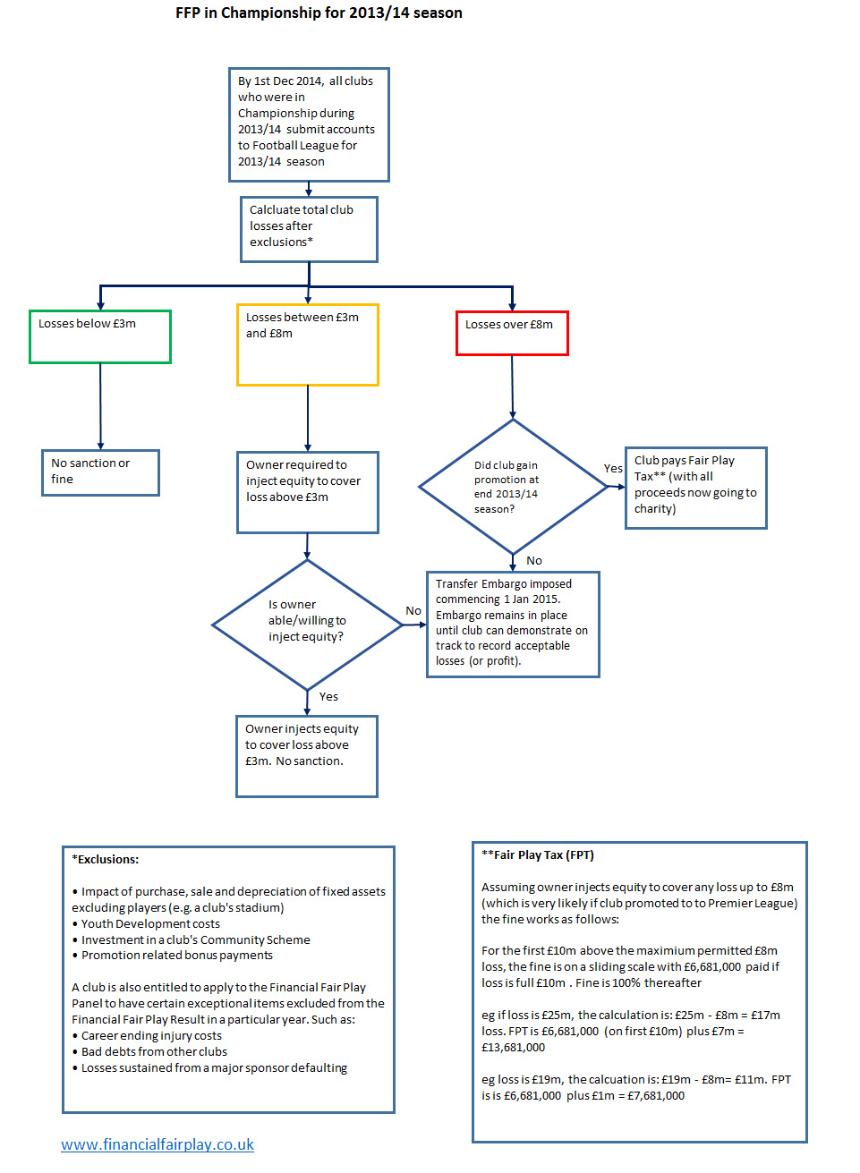Fair Play Tax in Championship to go to charity
Nick Harris, writing in the Mail On Sunday, has delivered a rather nice scoop and discovered that any 'Fair Play Tax' will now be paid to charity, rather than be redistributed to Championship clubs.
The Fair Play Tax (FPT) was introduced to sanction clubs that overspend whilst gaining promotion to the Premier League. The FPT was designed as a deterrent so that clubs are less likely to spend heavily in an effort to get out of the Championship. The rules were announced by the Football League in April 2012 following a vote by the member clubs. Originally, any FPT was to be re-allocated to any clubs that stayed within the rules - the FPT was an added incentive to comply. However it now appears that the FPT will go to charity. The reasons for the change are unclear but this does seem rather harsh on the clubs that remain in the division and balance their books. The clubs certainly didn't vote for the FPT to be given to charity. However the FPT was always subject to ratification by the Premier League (as any club affected would be a PL member when the FPT tax was applied). Nick Harris advises that the change was made for 'political reasons' but frustratingly has been unable to find out more.
This change has significant implications. At an Isportconnect seminar last month Jez Moxey (Wolves) estimated that a third of the Championship would not stay within the FFP rules this season. He suggested that clubs might well push for the rules to be amended. If we assume 14 clubs manage to comply and that QPR's FPT is (for example) £35m, this works out to £2.5m each for the compliant clubs. To put this into perspective, Derby County receive around £5m in Match-Day Income each season and have recently sold naming rights to their stadium for £700k a season (goodbye Pride Park, hello "Ipro Stadium"). Given that the new rules also require the owners of clubs that lose more than £3m to inject equity into the club, I suspect very few will be happy with the news that the FPT will go to charity!
It is possible that the change may have been due to a desire to preserve the integrity of the Championship. Any unused portion of the parachute payments (c £37m if a club 'bounces back' immediately) is reallocated to the Championship clubs. If the FPT were included, there could be a significant incentive for a club to 'want' a club such as QPR to be promoted.
Although QPR's CEO Tony Fernandes rather disingenuously advised via twitter "QPR fans please ignore Article", other owners have been more open about the impact of FFP. Blackburn's MD Derek Shaw advised fans last month that the club is likely to receive a fine (if promoted) or a transfer embargo.
I have produced a graphic that explains how the Championship rules work (and the sanctions):

Note: The newly relegated clubs must comply with the FFP rules in full. During their first December in the Championship, a newly relegated club does not have to submit their accounts for the previous season (i.e. the accounts relating to the season when they were in the Premier League). However QPR, Reading and Wigan will need to submit their accounts for the 2013/14 season to the Football League (and will be hit with a sanction if their 2013/14 accounts show that losses exceeded the permitted thresholds).
blog comments powered by Disqus
